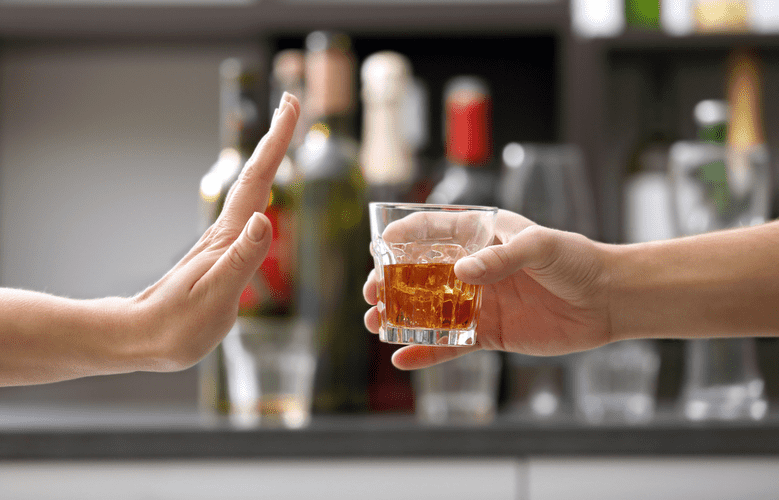Contents

The concurrent carbohydrate intake might be the principal reason for the sensation of hunger after alcohol consumption in the non‐diabetic participants. Although we did not study the effects of simultaneous protein or fat consumption in the present study, intake of these nutrients with alcohol might be able to prevent the reactive hypoglycemia. Further studies are required to confirm the mechanisms of this reactive hypoglycemia. Heavy alcohol consumption (i.e., 200 grams of pure alcohol, or approximately 16 standard drinks, per day) can cause ketoacidosis in both diabetics and nondiabetics (Wrenn et al. 1991).

Try using calorie-free drink mixers like diet soda, club soda, diet tonic water, or water. To understand this, it is necessary to review the basic pathophysiology of glucose utilization . In the postprandial state, insulin levels peak at about 1 h and then steadily fall over the next several hours. Simultaneously during this decline, there is decreased uptake of glucose by the liver, muscle, and adipose tissue. Insulin is no longer suppressing glycogenolysis, gluconeogenesis, and lipolysis.
Talk to your doctor about the effects of alcohol on diabetes, especially if you are taking medications or have other health concerns, like high blood pressure. With guidance and careful planning, you can control your diabetes in any situation. A 32-year-old man was found confused and moaning in bed by family at 5 a.m., and brought in by family at 9 a.m. Family members stated he had eaten lunch and dinner with them the previous day, then went out drinking alcohol with friends and came home at 3 a.m. Past medical and surgical histories were unremarkable, and he takes no medications and has no allergies. Food slows down the rate at which alcohol is absorbed into the bloodstream.
Within a few minutes of drinking alcohol, and for up to 12 hours afterward, alcohol can cause your blood glucose level to drop. After consuming alcohol, always check your blood glucose level to make sure it is in the safe zone. Check with your healthcare provider to see if drinking alcohol is safe for you. This will depend on many things, such as your age, other health conditions, and the number and type of medicines you take. Your provider or dietitian can also tell you how to fit alcohol into your diet.

The liver normally re-incorporates free fatty acids into triglycerides, which are then packaged and secreted as part of a group of particles called very low-density lipoproteins . In patients with ketoacidosis, however, the liver metabolizes the incoming free fatty acids in an additional, unusual way. Under the influence of excess glucagon, some of the free fatty acids are converted to ketone bodies and secreted into the blood, causing severe health consequences.
Addiction Treatment Programs
Get FREE daily coaching messages from Chris Scott to help you quit or cut down on alcohol in just 10 days. If you have any questions about the relation between hypoglycemia and alcohol, please leave them in the comment box below. Hypoglycemia is perhaps the most ignored centerpiece of alcohol recovery. But if you’re new to this site, you should also know that nutrient deficiencies caused by alcoholism can persist indefinitely.
We measured IRI using an E‐test Tosoh II kit , and whole blood ethanol concentration was measured by gas chromatography at the Specimen Research Laboratory . This was a prospective trial carried out between March and June 2017. A sweat‐patch alcohol test was used to identify alcohol resistance.
Effects of Alcohol Consumption in the Fasting State
Some people treated with chlorpropamide experience an unpleasant, disulfiram-like reaction5 after drinking alcohol. The combination of alcohol-induced hypoglycemia, hypoglycemic unawareness, and delayed recovery from hypoglycemia can lead to deleterious health consequences. For example, Arky and colleagues studied five diabetics who experienced severe hypoglycemia after ingesting alcohol. In all five patients, the alcohol-induced hypoglycemia induced neurological changes, such as incontinence, inability to follow simple commands, perseveration,4 disorientation, and impairment of recent memory. In three patients, those changes did not reverse, even after months or years.
I still take this supplement on days that I have to train 6 or more people. I don’t feel anything when I take it, but I notice that I’m able to come home and write a lot without feeling fatigued. Alcohol should be consumed with food, either at a meal or with a snack. He awoke rapidly, and the results of his neurologic examination were normal, but he remained hypothermic and hypoxic with epigastric guarding. He was given oral omeprazole , IV ranitidine, and IV ceftriaxone, and placed on an oxygen concentrator.

Being tipsy has another downside, making it easy to mix up your medications or to forget to take them entirely. Because many of the symptoms of hypoglycemia—such as slurred speech, drowsiness, confusion, or difficulty walking—are also symptoms of being drunk, it can be difficult to tell the two apart. And if you often have hypoglycemia unawareness, a condition in which you don’t recognize you’re going low, drinking becomes especially dicey. Timing may also be an issue, as hypoglycemia can strike hours after your last drink, especially if you’ve been exercising. Too much drinking, on the other hand , can lead to higher blood sugar and A1C. We publish material that is researched, cited, edited and reviewed by licensed medical professionals.
Share this article
Taskinen MR, Valimaki M, Nikkila EA, Kuusi T, Ehnholm C, Ylikahri R. High density lipoprotein subfractions and prostheparin plasma lipases in alcoholic men before and after ethanol withdrawal. Boden G, Chen X, Desantis R, White J, Mozzoli M. Effects of ethanol on carbohydrate metabolism in the elderly. 3A standard drink contains 12 grams (approximately 0.5 ounce) of pure alcohol. This amount is equal to one 12-ounce bottle of beer or wine cooler, one 5-ounce glass of wine, or 1.5 ounces of distilled spirits. C-peptide, a molecule that is produced together with insulin (because C-peptide is more stable than insulin, it can be detected longer in the blood and is frequently measured as a reflection of the average insulin secretion).
If you want to dramatically increase your chances of controlling addiction to alcohol, it is vital to address dietary habits and to look at what is going on with your blood glucose. Remember, alcoholism has trained your body and brain to rely on the substance when your blood sugar balance is off. Retraining your system through proper nutrition in the first months of recovery is key. Take a look at the numbers and you’ll find that only moderate drinkers have less cardiovascular disease. Those on the opposite ends of the spectrum—people that drink heavily and those that don’t—have a greater risk. If you never or rarely drink alcohol, you’re not alone—in fact, people with diabetes drink about half as much as other adults.
It doesn’t discrithe 4 stages of alcoholism for the functioning alcoholicate on the basis of race, religion, gender, or socioeconomic status. Whether it is used as a chemical, drug or food, 14 million Americans are under its influence. From the womb to the grave, alcohol’s effects on the body can be devastating. Its physical and emotional effects can range from upsetting the metabolism and nutritional state of the body to increasing the risk of cancer, liver and heart disease, high blood pressure, and diabetes. Erection problems may arise and, as a consequence, the need for . It can cripple the emotions with low self-esteem and promote feelings of isolation, rejection, loneliness, hopelessness, and fear.
- This is because their body already has difficulties balancing blood sugar levels, which increases the likelihood of experiencing hypoglycemia.
- To be clear, I’m not arguing that psychological considerations are unimportant in alcohol recovery.
- Those observations suggest that the reduced levels of vitamin E in alcoholics actually may have harmful long-term effects.
- Avogaro A, Duner E, Marescotti C, Ferrara D, Del Prato S, Nosadin R, Tiengo A. Metabolic effects of moderate alcohol intake with meals in insulin-dependent diabetics controlled by artificial endocrine pancreas and in normal subjects.
- When we verified that the potential participants were biologically capable of consuming alcohol, using these tests, they were enrolled in the study.
Since all fructose gets shuttled to your liver, and, if you eat a typical Western-style diet, you consume high amounts of it, fructose ends up taxing and damaging your liver in the same way alcohol and other toxins do. There is some belief that hypoglycemia also plays a role in the experience ofalcohol withdrawalthat alcoholics have when they stop drinking. For example, symptoms of alcohol withdrawal can include confusion, irritability, shaking, nervousness, weakness and fatigue, which can also be symptoms of hypoglycemia. With alcohol and hypoglycemia, the risks can be particularly severe if you binge drink and you haven’t eaten within six hours. This makes it even more difficult for your liver to make new glucose because it doesn’t have the necessary materials.
If you have one or more drinks a day, you may find that your A1C is lower than during times you weren’t drinking. But if you don’t drink regularly, this doesn’t mean you should start. After all, other aspects of moderate drinkers’ lives may be behind the link. Alcohol consumption can lead to less predictable blood sugar levels, which can be a problem for people with type 2 diabetes. The liver plays a crucial role in both detoxifying the blood of alcohol and maintaining blood sugar levels. However, it struggles to perform both processes simultaneously and prioritizes alcohol metabolism over blood sugar maintenance, which can lead to hypoglycemia.
It’s a vicious cycle that can lead to major health problems if left untreated. If these symptoms seem familiar to you as someone who has had problems with alcohol (for example, if you’ve experienced mild to moderate alcohol withdrawal symptoms and hangovers), there is a way out. With all the focus on carbs, it’s easy to forget that alcohol also has calories. Given that drinking can make you lose track of what you’re eating, calories can add up quickly.
Thus, both neuropathy and vascular disease likely play significant roles in impotence in diabetic men. Blood glucose regulation by insulin in healthy people and in people with type 1 or type 2 diabetes. Nutritional therapy during rehabilitation is the answer you’re looking for if you or a loved one has hypoglycemia related to alcohol consumption. Poor nutrition is a mainstay for people struggling with substance abuse.
The connection between hypoglycemia and alcohol lies in how alcohol affects the liver. The liver regularly releases a form of glucose into the bloodstream, maintaining steady blood sugar levels. Individuals with diabetes must take care when consuming alcohol. This is because their body already has difficulties balancing blood sugar levels, which increases the likelihood of experiencing hypoglycemia. Alcoholics who quit drinking often suffer from low blood sugar, but this problem is not caused by quitting alcohol. It is a residual effect of chronic heavy drinking, which spikes insulin levels and leads to episodes of low blood sugar.
The participants provided their written informed consent to participate in the study before entry and after explaining the potential risks, such as abdominal symptoms and acute alcohol intoxication. The study was carried out in accordance with the Declaration of Helsinki and with the approval of the Sapporo Medical Association’s Ethical Review Board. The study was registered with the University Hospital Information Network Clinical Trials Registry .
Severe hypoglycemia occurs when someone has very low blood glucose levels. Without treatment, it can lead to loss of consciousness and coma. Therefore, it is important to seek immediate medical attention to confirm this diagnosis and receive appropriate treatment. However, problems arise if the liver must choose between balancing blood sugar and detoxification because it cannot perform these actions simultaneously.
If you pass out, those around you may just think you are intoxicated. Hypoglycemia occurred more frequently after the simultaneous consumption of alcohol plus glucose than after the consumption of glucose alone, suggesting that alcohol in the combination of glucose induces reactive hypoglycemia. Recognize that most, if not all, alcoholics are hypoglycemic, and unless both issues are addressed, recovery is severely hampered. Diet Suggestions, one of the best tools to control hypoglycemia/alcohol symptoms. A hypoglycemia diet and lifestyle change may be just what you need to keep you on the road to recovery.
